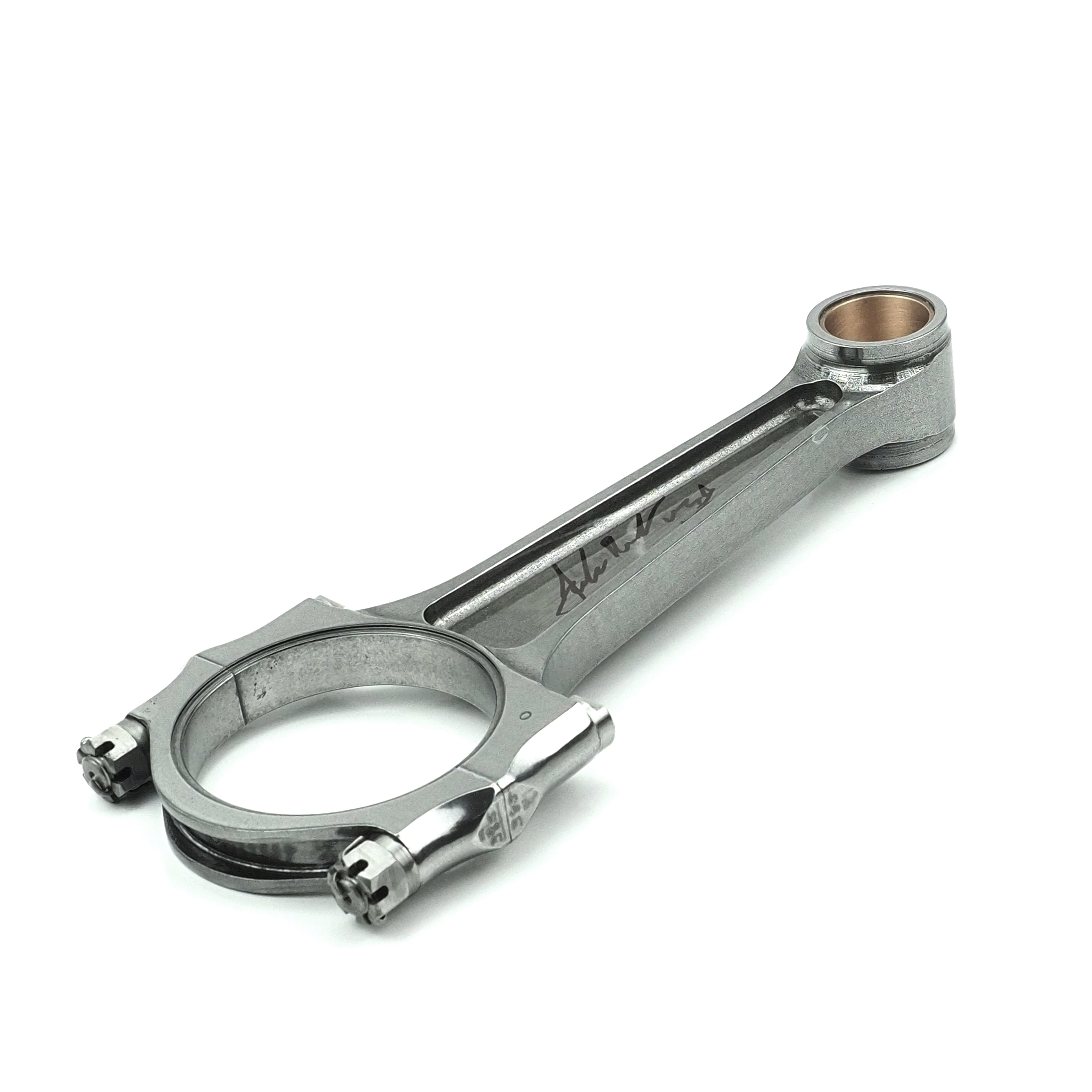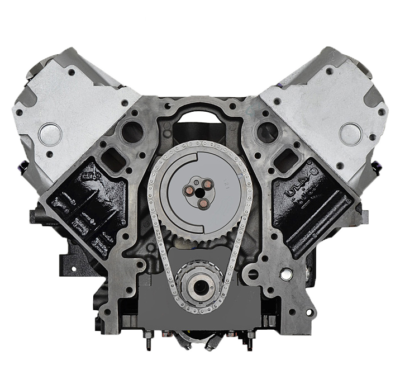854 Million, Hello Car54 LOLHow many millions will they be putting into cam/lifter and pushrod R&D
Because apparently they forgot how to design and manufacture these things
You are using an out of date browser. It may not display this or other websites correctly.
You should upgrade or use an alternative browser.
You should upgrade or use an alternative browser.
General Motors investing $854 million to build V8 engines amid EV shift
- Thread starter GON
- Start date
As long as it's reliable i agree too.Give me the hurricane I6 and day of the week over a gas pig v8.
If these are in trucks, then turbos are the wrong direction. We only need to look at Ford and see there are zero turbo options despite them having lots of experience and even one very capable 3.5 turbo on the shelf with similar output numbers; yet they stuff two big block gas options in their work trucks. That's pretty telling.
Every Ford diesel in an HD has had a turbo since 1994.
I would assume this new engine for GM is designed to take on the 7.3.
It depends on what you call cold. Below 0F, it's best to have a circulating block heater that cuts into the heater return hose. Without one, the engine will start, run for a minute then quit when the liquid to gasious converter freezes up.I forget, do those have cold start issues, in cold climates? Regardless, high pressure tanks and limited range are other considerations?
Tangently, the local garage that services busses in our district (might not be the only one, not sure) blew up from one. Link1. Link2. At the very least, my school district might have issues adopting, regardless of reasons for the accident and/or reasons to switch.
Hard on the DYI oil sales, railway vehicles used for deadheading train crews would see up to 10,000 miles a month and go 2 months or more between services.
They got traded in at million miles or 8 years whichever came first.
One driver bought his favorite van, a 3500 GMC Savana with 1,200,000 miles on the original
engine for $500 ten years ago. It's still plugging along. He always used Penz SAE 30 HD, maybe with a cap of household bleach and a squirt of Halo shampoo to glorify the engine oil.
Last edited:
As much as I like the power of my EcoBoost, Americans generally have a serious preference in favor of a V8 exhaust note over a V6. In addition, if they get lifters without defective bearings, their V8s are less stressed than a turbo 6, don’t have miles of timing chain, and should generally have better reliability as well.I agree that the ICE age is not over yet despite what thesay but I don’t understand the investing back into V8s. Build a turbo six with better fuel economy.
They didn’t learn from the 70’s.
GM is investing $1M into our Rochester facility. Will create ~100 new jobs. 
There is no replacement for displacement. 
- Joined
- Jul 10, 2022
- Messages
- 6,353
Great news. Wonder how many in the general population currently own a V8, and of those people, how many have had a V8 most of their driving careers.
I currently have a 2006 V8, and it's the first and only one I've ever had. I also have a twin turbo I6, and a V6. The V8 is for all intents and purposes the smoothest and delivers torque very well, despite the I6 being balanced from a physics standpoint.
I currently have a 2006 V8, and it's the first and only one I've ever had. I also have a twin turbo I6, and a V6. The V8 is for all intents and purposes the smoothest and delivers torque very well, despite the I6 being balanced from a physics standpoint.
Yogi Berra said: “ It ain’t over ‘till it’s over. “
Another thing Yogi said: “ 90 % of vehicles will be ICE. The other half will be EV’s”
Another thing Yogi said: “ 90 % of vehicles will be ICE. The other half will be EV’s”
GM trying to keep people employed for as long as possible. I wonder what shareholders think of this move?
Nope it was smog emissions coupled with gas shortages which killed off the old inefficient iron.Engines were plenty powerful in the 60s, just less efficient. The CRUSHING efficiency requirements killed innovation for power + efficiency and refocused all efforts on simple economic efficiency. That gave birth to pathetic car power from around the early 70s until the late 90s, with rare exceptions and some turbos. Gas became cheap and available by the early 1980s, but the cars were still just pathetic without power.
The innovation we see since around the late 90s has some relationship to fuel economy, but as you point out the microchip had a lot to do with it. Fuel injection as well. Other advances that have nothing to do with raw power, are critical to keeping that power safely on the road - advances in tire technology and materials, ABS, traction control, steering, braking, suspension, etc. Because they could probably do 600+ HP in the eras, theoretically, but it would have been totally impractical and unsafe while also drinking a gallon of fuel every few miles.
It took until probably the first decade of the 2000s to really crack the code on incredible ICE power + efficiency, and fuel has been relatively inexpensive. Compared to inflationary costs, fuel is far cheaper today at $3.50 than it was when I was a teenager at $1, especially considering fuel economy has effectively doubled. Fuel is cheaper and one can drive twice as far on it. A 500hp Mustang is more fuel efficient than a 120hp 1980 Buick Skylark as well.
Aluminum heads brought compression back and premium gasoline was redeveloped to match. The everyday aluminum heads developed were like exotic racing heads of the past. Variable cam timing help restore some efficiency. Roller cams helped with the ramps allowing more performance. Fuel injection ( already mentioned) was the icing on the cake. The resulting higher RPM limits helped with the horsepower numbers.
And you can do pit stops in 5 minutes. Also they will help prevent another ICE age from occurring. Wait a minute, ICE, ICE age?
And you can do pit stops in 5 minutes. Also they will help prevent another ICE age from occurring. Wait a minute, ICE, ICE age?
Last edited:
It's interesting to think that we did not know how to build efficient engines in the 60's and 70's. Nothing could be further from the truth. We have been building efficient aircraft engines (as thermally efficient as the Prius engine, about 41% TE) since the late 1930's.
What American car manufacturers did was simply make easy to produce engines from cast iron. No press in valve guides, no press in valve seats, etc. Just a cast iron block and head with valves, pistons cam and crank. Those simple designs were not well suited for emissions compliance.
Here is a engine designed in the late 1930's and mass produced in the 1940's, DOHC, 4 valve per cyl, tumble combustion, supercharged, fuel injected, etc...


What American car manufacturers did was simply make easy to produce engines from cast iron. No press in valve guides, no press in valve seats, etc. Just a cast iron block and head with valves, pistons cam and crank. Those simple designs were not well suited for emissions compliance.
Here is a engine designed in the late 1930's and mass produced in the 1940's, DOHC, 4 valve per cyl, tumble combustion, supercharged, fuel injected, etc...


Last edited:
But was that necessary? IIRC aluminum heads bleed heat faster. Light is good, but you want heat in the chambers, doing the expansion in there.Aluminum heads brought compression back
IMO, while ECU's got cheap, what really shifted was public opinion. For a decade or more, people just weren't looking for power. 55mph, oil price problems, economy up and down. For whatever reason the OEM's weren't competing with each other--until they were. Software to model every aspect of the drivetrain surely helped, getting better combustion chambers along with freer flowing intake and exhaust. But I think for a few years people just were not buying. People say they wanted power back then--but it was a bit like the manual trans station wagon in color brown with no options. No one buys those new, but lots of people on the web insist they'd buy it--but only used, apparently.
- Joined
- Dec 16, 2022
- Messages
- 1,173
Every Ford diesel in an HD has had a turbo since 1994.
I would assume this new engine for GM is designed to take on the 7.3.
Diesels are built much stronger. Ford doesn't put their ecoboost in their heavy duty trucks. The 3.5 makes similar power numbers as the gas engines in the super duty, yet they wont' use it there, and that's because the ecoboost is a passenger car engine meant for light duty usage.
The GM 6.6 is already quite capable compared to the 7.3. The 7.3 makes a bit more power, but not as much more as you might expect given the difference in displacement. The 6.6 is held back by the 6 speed transmission, this is being corrected as the 2024 models are finally getting the 10 speed.
There were rumours of GM heavy duty's getting a big block or a bigger displacement. We'll see.
Maybe GM realized unlike some others that EV pick ups will be a dud.
I'm with SBF on this one, when he thought no one was listening.
That is one reason I like a pushrod V8. They don't have yards of multiple timing chains, just one short chain. No chain tensioners, cam phasers, and plastic chain guides to fail. Plus a pushrod engine is much more compact. Compare a GM LS pushrod engine to a Ford Coyote. Those DOHC heads are massive.As much as I like the power of my EcoBoost, Americans generally have a serious preference in favor of a V8 exhaust note over a V6. In addition, if they get lifters without defective bearings, their V8s are less stressed than a turbo 6, don’t have miles of timing chain, and should generally have better reliability as well.

Compared to an LS:

On
Just bought a slightly used F150 with the EcoBoost. I had three GM trucks in a row with the 5.3. The EcoBoost out performs it in every respect except for highway mpg. There is a 2 mpg hit. I take the F150 over the 5.3 any day.So you want a highly complex twin turbo gas pig with two less cylinders to save 1 to 2 m.p.g
Similar threads
- Replies
- 36
- Views
- 11K
- Replies
- 67
- Views
- 31K
- Replies
- 11
- Views
- 3K
- Replies
- 35
- Views
- 13K
